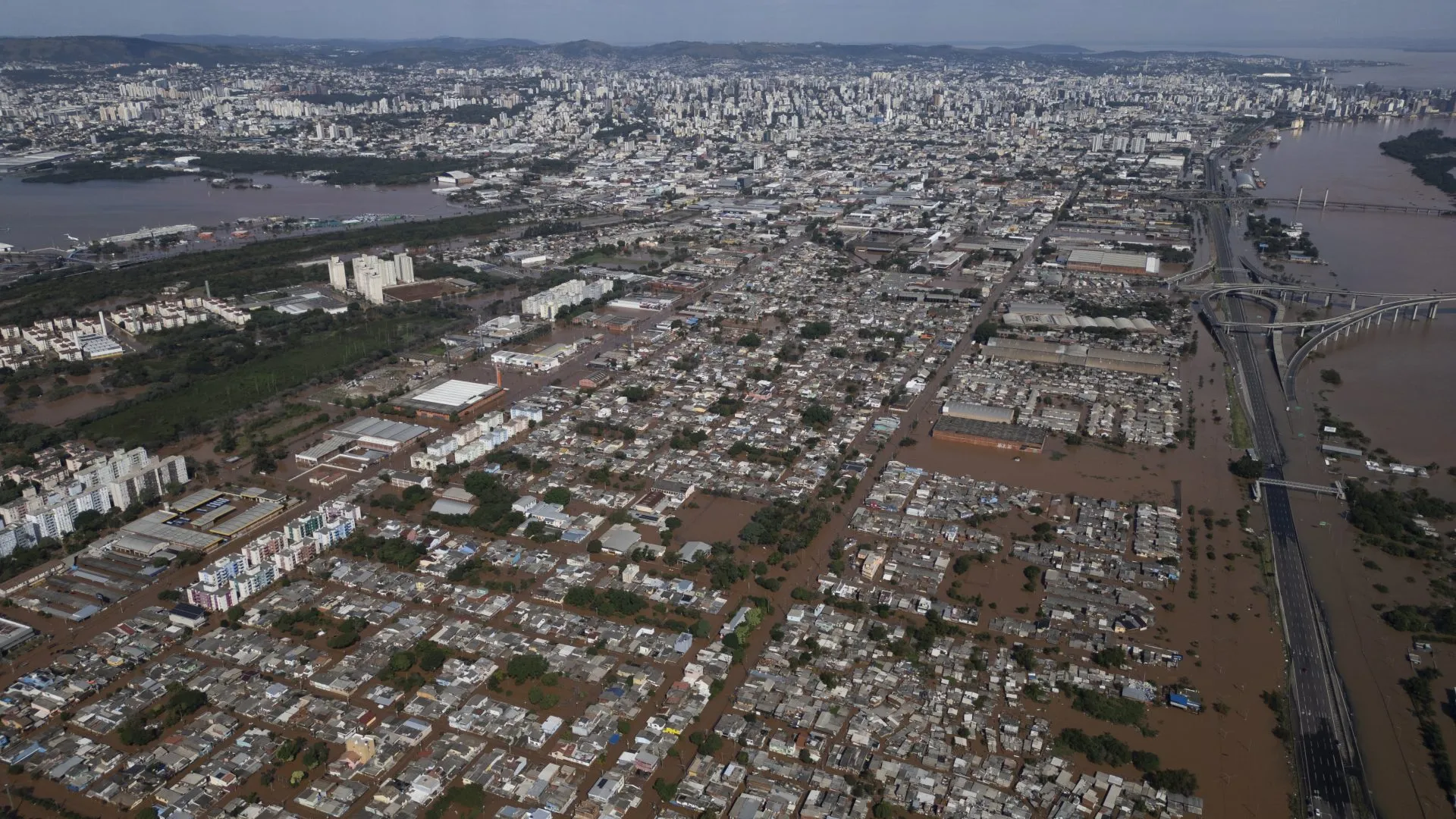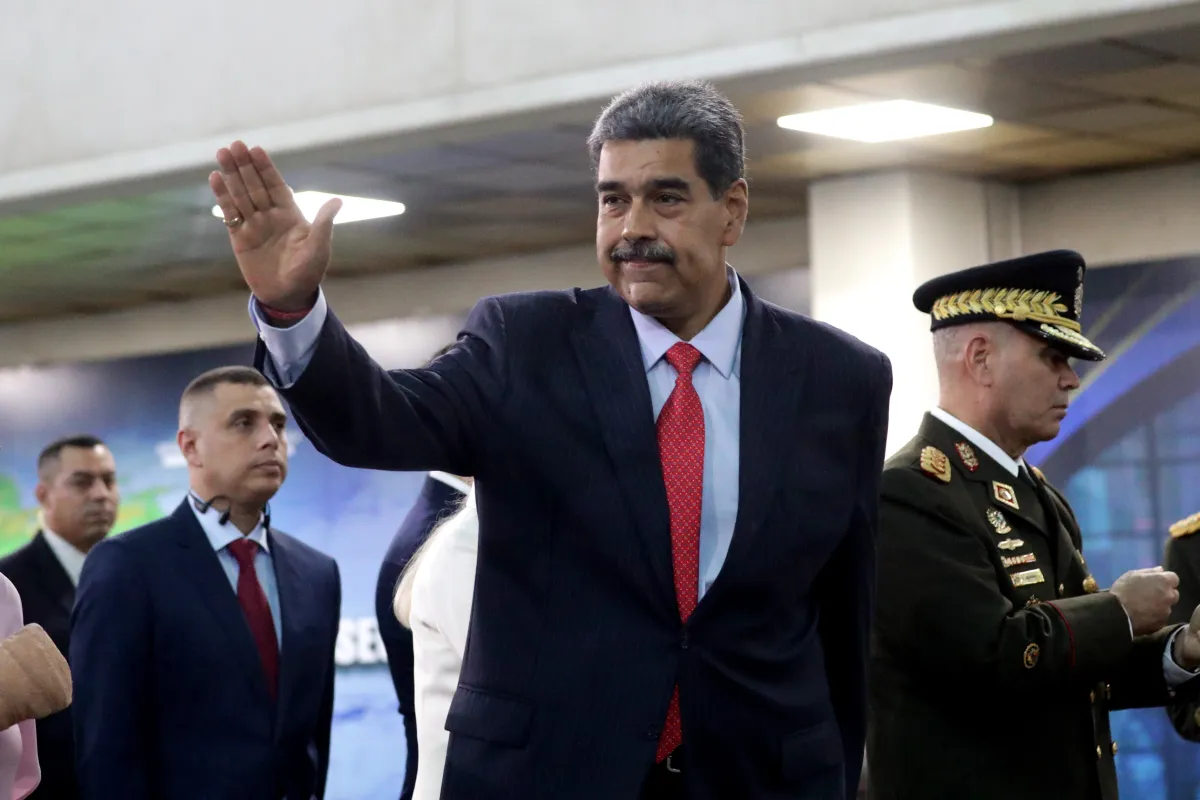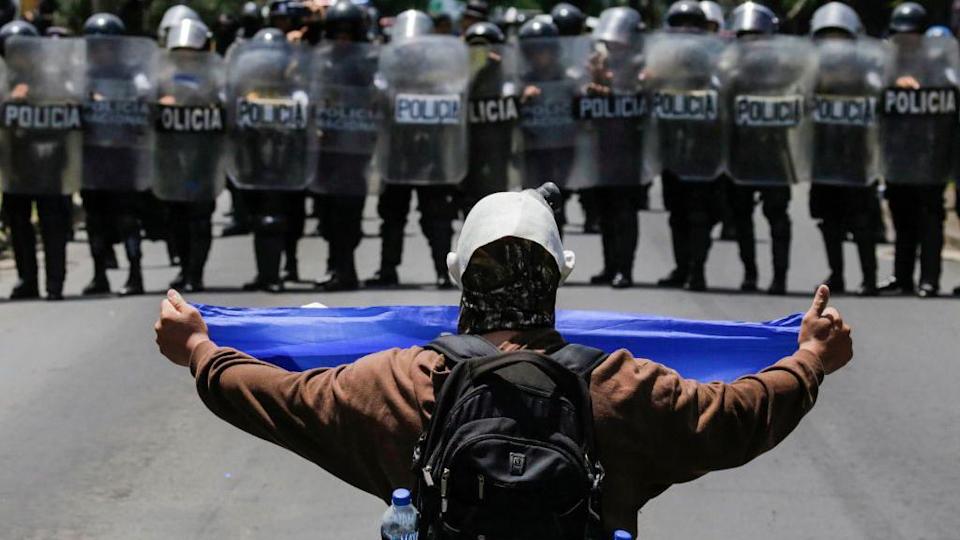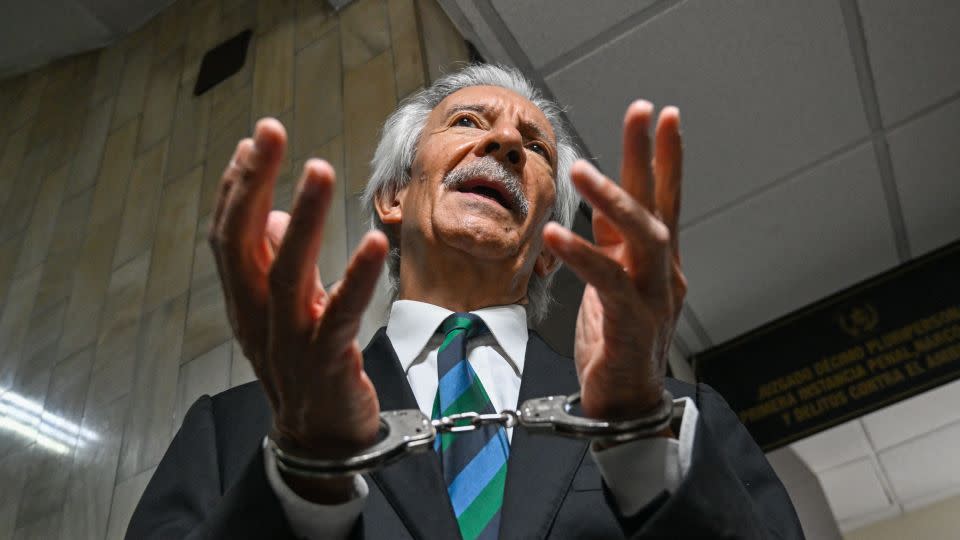Centroamérica
The number of deaths from the floods in southern Brazil rises to 84

The floods caused by the heavy rains in southern Brazil already leave at least 84 dead and 111 missing, according to the balance released on Monday by the regional authorities.
The rainfall, which is just beginning to diminish in that area of the country after a week without truce, has affected more than 840,000 inhabitants of 345 municipalities, who suffer from the lack of food, medicines and basic services such as electricity and energy.
Data from the local Civil Defense indicate that, of that total, 121,957 people have been forced to leave their homes and move to the enclosures of family and friends, while another 19,368 are housed in shelters improvised by the authorities.
The Brazilian state of Rio Grande do Sul, on the border with Uruguay and Argentina, has been the most hit by the rains, with at least 83 fatalities, while the neighboring state of Santa Catarina recorded one death.
The authorities are also investigating whether four other victims are related to the climate tragedy that plagues the south of the country and that is already considered the worst natural disaster in the history of the region.
The level of the Guaíba River, whose waters flooded the historic center of Porto Alegre, the regional capital and where 1.3 million inhabitants live, stabilized above five meters, its largest mark.
With a population of 11 million inhabitants, Rio Grande do Sul has a total of 496 municipalities, of which 345 are affected.
At least 1.2 million homes and commercial establishments remain without electricity and 98 municipalities lack telephony and internet services.
Likewise, 61 roads reported total or partial blockages due to the flood of the rivers.
The Government of Luiz Inácio Lula da Silva and the whole country have turned to help the victims.
There are currently more than 14,500 professionals in the region, most of the Armed Forces that have achieved 25,000 air, land and river rescues, with the support of 30 aircraft, 182 boats and 951 vehicles.
Weather forecasts announce new rains in areas already hit by storms due to a new cold front that will cause heavy rainfall.
Centroamérica
White House rejects Maduro letter to Trump as full of lies

White House spokesperson Karoline Leavitt confirmed Monday that U.S. President Donald Trump received a letter from Venezuelan President Nicolás Maduro, whom she described as “illegitimate.” In the letter, Maduro expressed his willingness to engage in dialogue, but Leavitt warned that the document “contains many lies.”
“We have seen this letter. Frankly, I think Maduro repeated many lies in it, and the Administration’s stance on Venezuela has not changed,” Leavitt said during a press conference at the White House.
The spokesperson emphasized that Washington considers the Chavista regime illegitimate and underscored that “President Trump has clearly demonstrated his willingness to use all necessary means to stop the lethal drug trafficking from the Venezuelan regime to the United States.”
Meanwhile, Venezuelan Executive Vice President Delcy Rodríguez confirmed on Sunday that Maduro sent the letter to Trump and published it on Telegram.
Dated September 6, the letter expresses Maduro’s willingness to negotiate with U.S. special envoy Richard Grenell and denies any links to drug trafficking. “In recent weeks, absolutely false accusations have emerged about connections with mafias and drug trafficking gangs by the legitimate high authorities of Venezuela,” the letter reads.
Central America
UN experts label Nicaragua’s repression as crimes against humanity

These are just some of the violations of human integrity that the United Nations’ Group of Experts on Human Rights in Nicaragua considers crimes against humanity.
The expert team determined in its latest report, presented on April 3, that the “State is persecuting its own people” with repressive actions that, under international law, would fall into the category of crimes against humanity.
“This report is a wake-up call for the international community about the situation in Nicaragua and its duty to protect its population,” Jan-Michael Simon, a lawyer and president of the group, told BBC Mundo.
The document identifies 54 individuals, including ministers, members of the security forces, and civil society actors, as responsible for the “systematic and widespread repression” carried out by the regime of Daniel Ortega and Rosario Murillo.
Although this is not the first time the technical team created in 2022 has denounced the events that began with the 2018 protests in Nicaragua, the report now names the alleged perpetrators, whose guilt will have to be determined by international justice bodies such as the International Court of Justice in The Hague.
As a result of the report, the “co-presidents” Daniel Ortega and Rosario Murillo decided to withdraw their country from the United Nations Human Rights Council.
“Nicaragua conveys its sovereign and irrevocable decision to withdraw from the Human Rights Council and from all activities related to this council and all its satellite mechanisms,” Murillo announced.
Centroamérica
Guatemalan journalist José Rubén Zamora returns to prison after court revokes release

Businessman and journalist José Rubén Zamora was sent back to prison on Monday after the Second Multipersonal Criminal Court complied with an order from the Third Court of Appeals, which suspended his conditional release. The ruling followed a motion filed by the Public Ministry, arguing that Zamora posed a flight risk.
“I must comply with and enforce the order,” Judge Erick García stated during the hearing that revoked Zamora’s substitute measures, which had been in place since October last year.
Following the court’s decision, the founder of El Periódico was transferred back to prison, where he had already been incarcerated from July 2022 to October 2024.
Zamora’s defense team unsuccessfully requested the suspension of the hearing, citing two pending appeals aimed at overturning the Court of Appeals’ decision.
-

 Central America5 days ago
Central America5 days agoGuatemala Police Arrest Prison Guard Caught in the Act of Extortion
-

 Central America5 days ago
Central America5 days agoHonduras swears in conservative president Asfura after disputed election
-

 Central America5 days ago
Central America5 days agoBukele leads public trust rankings as UCA survey highlights gains in security
-

 International4 days ago
International4 days agoFootball Fan Killed in Clashes After Colombian League Match
-

 Central America4 days ago
Central America4 days agoGuatemala President Says Starlink Terminal Found Inside Prison
-

 International5 days ago
International5 days agoDoomsday clock moves to 85 seconds before midnight amid rising global risks
-

 International5 days ago
International5 days agoWinter Storm Fern Leaves 30 Dead and Over One Million Without Power Across the U.S.
-

 International5 days ago
International5 days agoSpain approves plan to regularize up to 500,000 migrants in Historic Shift
-

 International3 days ago
International3 days agoU.S. Senate Rejects Budget, Bringing Government Closer to Shutdown Amid DHS Dispute
-

 Sin categoría5 days ago
Sin categoría5 days agoEight Killed in Series of Armed Attacks in Ecuador’s Manabí Province
-

 International4 days ago
International4 days agoMissing Spanish Sailor Rescued After 11 Days Adrift in Mediterranean
-

 International4 days ago
International4 days agoRubio Says U.S. Could Participate in Follow-Up Russia-Ukraine Talks
-

 Sin categoría5 days ago
Sin categoría5 days agoEl Salvador Launches Fourth Year of Ocean Mission to Protect Marine Ecosystems
-

 Central America2 days ago
Central America2 days agoPanama Supreme Court Strikes Down Panama Ports Concession as Unconstitutional
-

 International3 days ago
International3 days agoStorm Kristin Kills Five in Portugal, Leaves Nearly 500,000 Without Power
-

 Central America2 days ago
Central America2 days agoU.S. and Guatemala Sign Trade Deal Granting Zero Tariffs to Most Exports
-

 International3 days ago
International3 days agoTrump Says Putin Agreed to One-Week Halt in Attacks on Ukraine Amid Extreme Cold
-

 International3 days ago
International3 days agoMan Arrested After Vehicle Crashes Into Jewish Institution in Brooklyn


























